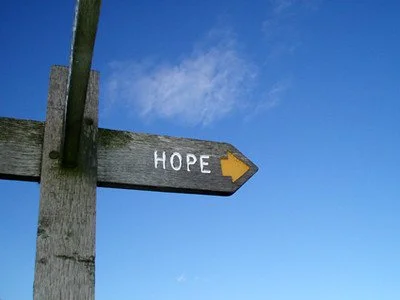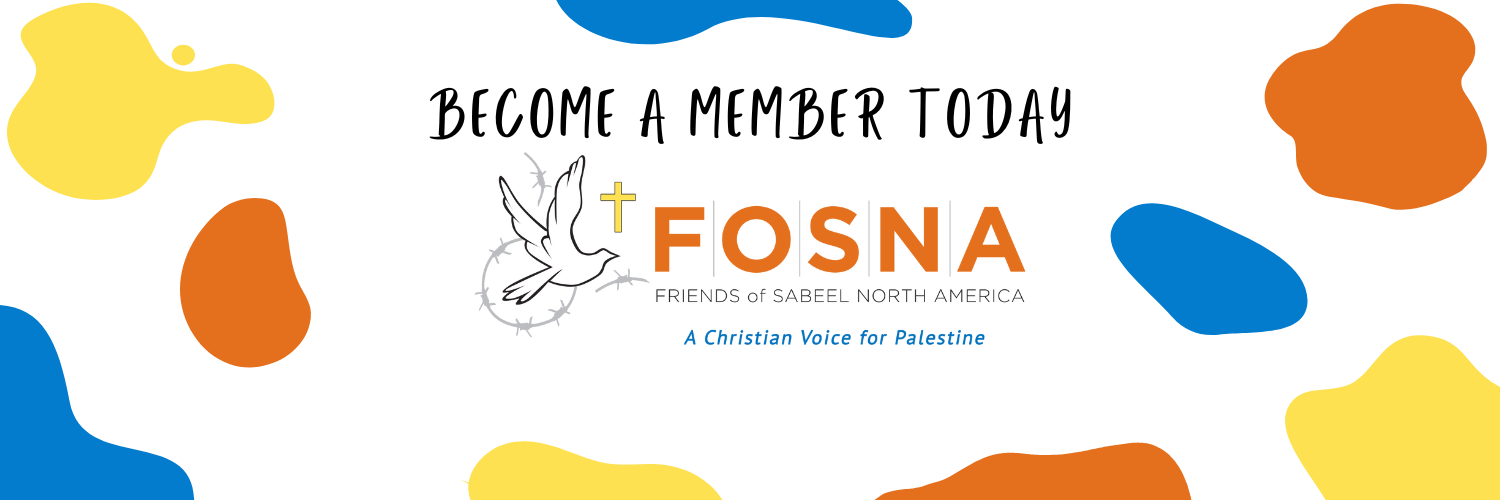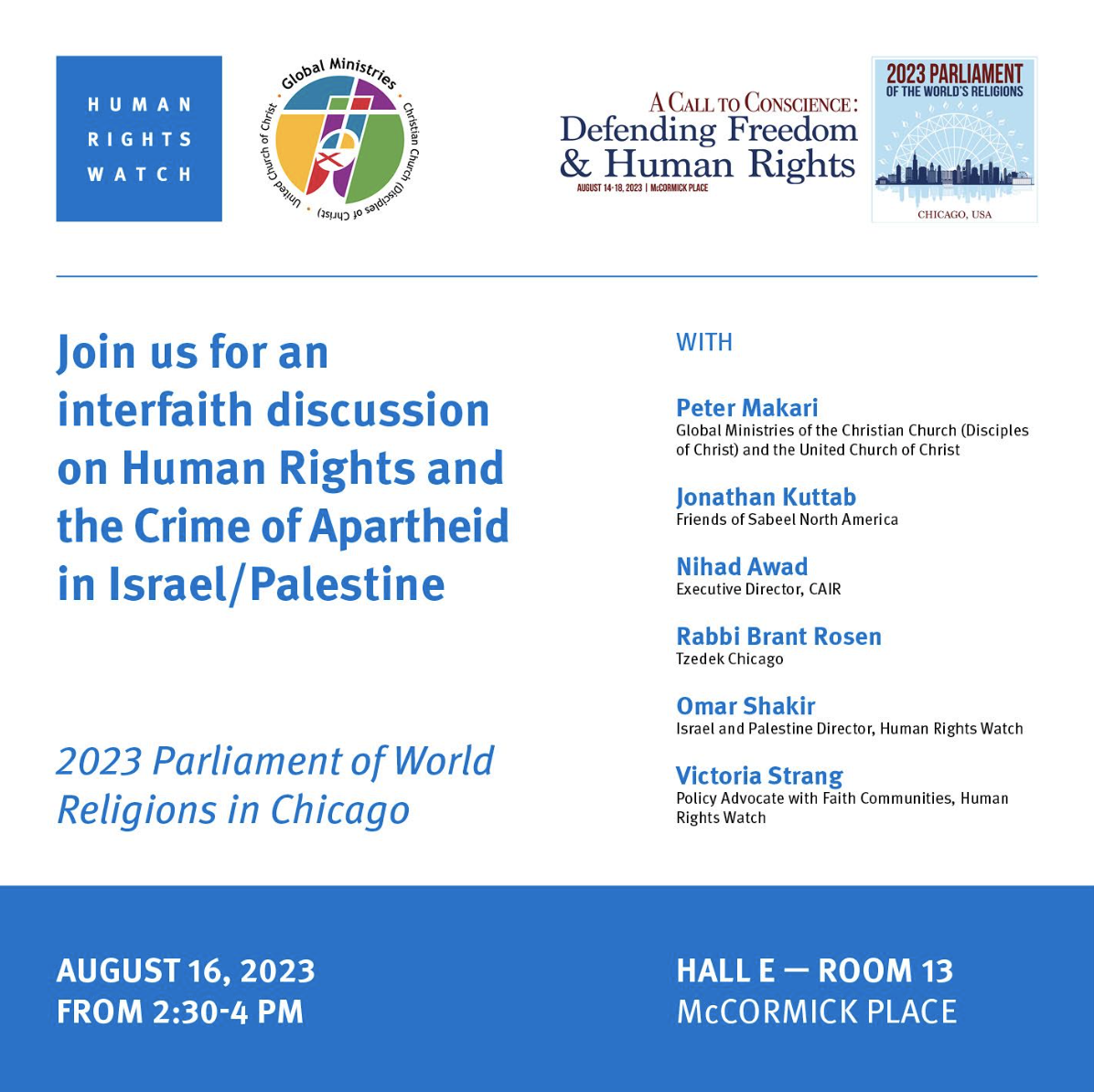Signs of Hope
by Jonathan Kuttab
I came across the following reflection I wrote in 2015. Every word of it is still as true today as it was back then. The turmoil in Israel, and the accelerating increase of settler violence, as well as the international recognition of Israel as an apartheid state are particularly obvious elements that are now highlighted.
I welcome your comments on this reflection as well as your support for our efforts to keep hope alive even while we cannot be optimistic about the current situation.
People often confuse Hope with optimism. Hope is a spiritual quality that recognizes that God is ultimately sovereign, and that the arch of history, however long, bends towards justice. Optimists expect change for the better in the near future. Those filled with, and driven by hope operate in difficult circumstances with the faith and certainty that evil and oppression and injustice cannot prevail ultimately, and that oppressive structures carry within them the seeds of their own destruction. They are encouraged by numerous examples in history where apparently all-powerful totalitarian regimes or dictators collapsed almost overnight; where apparently hopeless causes ultimately prevailed, where ingrained hatreds were overcome, and impeccable enemies were reconciled; where, against all odds, unjust regimes were defeated, and the weak triumphed. Examples range from the fall of slavery, apartheid, and colonialism, to the collapse of totalitarian regimes and despots from Romania’s Nicolai Ceausescu to Uganda’s Idi Amin, and Egypt’ Hosni Mubarak.
The victories in each of these cases appeared totally improbable at the time, yet in hindsight, the signs were all there, and the results were not only predictable, but almost inevitable. To detect them, one had to look deeper and take the longer view than the one normally taken by the pundits, the “experts” and those who realistically assess the “situation on the ground”.
This is also true of the situation of the Palestinians in their struggle with Israel and the Zionist movement. Their existing situation gives no grounds for any optimism whatsoever: they are physically fragmented, occupied, exiled, and powerless. In fact the balance of power at every level: military, economic, scientific, and technological is totally lopsided against them. Their “friends” in the Arab world are worse than their enemies; their leadership is pathetic, if not outright collaborationist; Israel effectively carries out its oppressive policies with full impunity, and the support of the world’s only superpower which promises to punish those who attempt to support them in any meaningful way.
Are there any signs of hope for Palestinians? I believe there are such signs, and many of them are very paradoxical. Here they are:
Ethnic Cleansing is no longer a possible outcome: for a number of reasons, it is no longer possible for Israel to expel additional large quantities of Palestinian Arabs from Palestine, as it did in 1948 and 1967. A few hundreds or thousands may still be expelled, and hundreds of thousands may be disenfranchised, but it is no longer possible to create a mass exodus across the borders and therefore physically ethnically cleanse significant numbers of Palestinians under any conceivable scenario. While there are many in Israel who would love to see such an exodus, and who are alarmed at the “demographic threat”, such an exodus cannot be engineered any more.
The reality and acknowledgement that no Palestinian or Arab military option exists. While it is doubtful that any combination of Arab forces could have defeated the state of Israel in the past, now that fact is not only confirmed but is acknowledged by one and by all. While Israel continues to repeat its mantra about its security and the existential threats it faces, no one, including its own military leaders seriously considers that military attacks are a serious threat to its existence and power.
The slow realization that Israel also has no possibility of resolving the dispute by military power alone. While Israel continues to prefer military strikes as its first option, and has a tremendous arsenal of nuclear, WMD, and conventional military forces, with a huge armaments industry and awesome destructive power, its military might has long surpassed its limitations. It still has tremendous firepower and can rain destruction on its enemies, near and far, at will, its ability to achieve political objectives by military power alone are severely limited.
Increased international awareness and involvement. While the Palestinian cause has always enjoyed international support, that support and involvement is now increasing in communities that have actual power and influence over Israel, such as Europe and the United States. The increased role of non-state actors, and the effectiveness of such tactics as BDS, as well as social media provide a basis for Hope, even though we cannot predict how and when these actors will have a decisive impact on the ground.
The escalating shift to the right in Israel, and the weakening of democratic institutions there. Paradoxically, this element both weakens Israeli aggressive power and reduces is ability to garner external support. As those trends continue, the elements of Israel’s “soft power” diminish, and all that is left is brute military force, which historically presaged the fall of many empires in the past.
The collapse of the “peace process” and the two-state solution. Another paradox. The peace process provided Israel with protection from forces challenging its occupation for many years, and the two-state solution, provided an alibi to avoid dealing with the serious moral and ethical issues involved in the creation of a “Jewish state” and the racist and discriminatory elements involved in it, as well as a delay in dealing with the issues of the right of return and of equality for non Jewish citizens of Israel. The deliberate sabotaging of that process and of the two state solution, particularly by settlement building and expansion, paradoxically highlights these issues and calls into question the entire Zionist project. As long as that paradigm prevailed, Israel could continue its policies undeterred.
The Palestinization of Israeli Arabs. For many years, the Non-Jewish Arab citizens of Israel were largely absent from the discussion of Israel/Palestine peace efforts, and Israel claimed to have ‘domesticated’ them with a combination of economic success and the appearance of political rights. As Israel becomes more racist and blatantly fascist, this façade collapses and that population becomes fully engaged in the struggle for equality and for Palestinian rights.
The breaches in the wall of Israeli stranglehold over US foreign policy. During recent years, there has been a deterioration of support for Israeli policies as an unshakable bipartisan issue. AIPAC was exposed as a paper tiger, and it was shown that US politicians can in fact defy the Israeli lobby and succeed. Constituencies that had been viewed in the past as unshakable and unquestioning supporters of the most right wing Israeli positions (such as the American Jewish community and Evangelical Christians) are showing more nuanced positions and openness to issues of Justice for Palestinians than ever before.
The Persistence of Palestinian nationalism against all odds. Ben Gurion once stated that “the older generation will die off, and the new generation will not know or remember Palestine.” Nothing is further from the truth. Today, in Israel, the Occupied Territories and the Diaspora, and against unbelievable odds, Palestinian nationalism is alive, well and vibrant, especially among the young. It is not the result of “incitement” or directives by any leadership.
Each of these trends and elements seem to be firm, clear, irrevocable, and growing stronger. Together, they provide a great Hope for the future. A just resolution of the Palestinian question will have a tremendous positive effect not only for Jewish Israelis and Palestinians, but will have great effect throughout the region, and will remove a major deep source of antagonism between the West and Muslim and Arab countries. It will also have a great effect on international law, and institutions, who have suffered from the weakening of their power and influence because they have not been uniformly applied to this question.
A tipping point has not been reached, and it is unclear what will happen when it is reached. It may well be that Israeli society can find a way to live with Palestinians peacefully, without dominating them, as happened in South Africa when Apartheid collapsed. On the other hand, it is possible that the loss of domination will only occur in the context of bloody destruction. One thing is sure, the arch of history, however long, bends towards justice, and we must continue to work for justice, with hope and faith, and concern for both Israeli Jews and Palestinian Arabs.
FOSNA News
After a two-year hiatus, FOSNA is reinstituting its Annual August Membership Drive.
As friends of Sabeel, we stand together in solidarity, secure in our calling as an unapologetic voice for Palestine. With the international spotlight once again on Palestine/Israel, we have an unprecedented opportunity to highlight the reality that Israel, to Palestinian eyes, has never been a democracy.
The challenges before us are great, but together we are making a real difference:
We are challenging the powers of oppression and domination that humiliate and suppress the Palestinian people;
Destructive theologies, ideologies, and assumptions no longer go unchallenged;
Americans continue to grow more aware of the realities of Israeli apartheid and the settler-colonial violence on which it is built;
And, we proudly support the essential work of Sabeel in Palestine, in solidarity with all Palestinians steadfast in their demand for justice and truth.
Becoming a member of a grassroots membership organization like FOSNA means joining an international movement of committed activists, advocates, academics, individuals of conscience, clergy and lay leaders, students, and a whole host of modern-day prophets speaking truth to power and striving together for liberation, justice, and peace in the Holy Land. Our members are our strength, and we need you.
Join us in standing alongside and supporting the remarkable people of Palestine in their ongoing quest for liberation, justice, and peace:
Become a supporting member for as little as $15/year, OR
Maximize your impact as a sustaining member for as little as $5/month
Take Action!
Phonebanking with Not on Our Dime
(Not on Our Dime) FOSNA proudly endorses the Not on Our Dime campaign. We will be phone banking, that is, gathering on Zoom to call through a list of people in New York City to invite them to a town hall featuring Senator Kristen Gonzalez and Assembly Member Zohran Mamdan, two champions of the Not on Our Dime legislation. It's strategically important that we pack out this town hall to show that there is broad support for this campaign. Simply invite them to register for the Zoom meeting using this link.
If you’re not based in New York this is the perfect opportunity to support and build the campaign!
August 17th from 7-8:30 pm ET with Jewish Voice for Peace
RSVP here
August 20th from 6-8 pm ET with the Not on Our Dime! coalition
RSVP here
August 23rd from 6-8 pm ET with DSA
RSVP here
We hope you will join us! We need to mobilize as many supporters as possible to attend — to out-organize our opposition. This phone bank is a critical tool to do so.
Also, we hope you yourselves will RSVP for the first Town Hall in Queens! Can’t make it? Don’t worry, there will be more.
Get Involved!
We invite you to join us in the following events and activities:
August 16: Chicago
2023 Parliament of World Religions: An Interfaith Discussion on Human Rights and the Crime of Apartheid in Israel/Palestine
FOSNA Executive Director Jonathan Kuttab will be a panelist at the 2023 Parliament of World Religions in Chicago! Attend this interfaith discussion on Human Rights and the Crime of Apartheid in Israel/Palestine August 16th ath 3:00pm.
August 20: Online
VFHL Film Salon: The Truth: Lost at Sea
In May 2010, an international flotilla of six unarmed civilian vessels, carrying citizens from dozens of countries (including the US), defied Israel's complete naval blockade to deliver much needed construction materials and humanitarian aid to Gaza. Under the cover of darkness, the most powerful military force in the Middle East dispatched heavily armed commandos via speedboats and helicopters to seize the Mavi Marmara, resulting in the tragic deaths of nine activists. "The Truth: LOST AT SEA" presents authentic footage and narration by a survivor to reveal the factual sequence of events, shedding light on how traditional and online media platforms manipulated and vilified human rights advocates who dedicated themselves to raising awareness about the plight of Palestinians in Gaza.
Watch the film for free at your convenience; Join the Q&A Discussion
Rifat Audeh: director, producer, activist, survivor of 2010 Gaza Freedom Flotilla
Ann Wright: Ret’d US Army Colonel, 2010, 2015, & 2016 Gaza Freedom Flotillas, 2018 & 2023 ground crew
Awni Farhat: Gaza activist, 2018 & 2023 Gaza Freedom Flotilla participant
Alex McDonald (moderator): author, educator, activist, 2018 and 2023 Gaza Freedom Flotilla participant
You must register to get the free film link and to participate in the Q&A discussion.
Weekly
Sabeel Prayer Service. Join Sabeel every Thursday (6pm Palestine) for online Bible Study, discussion, and prayer. Examine scripture in light of the ongoing realities confronting the Palestinian Church and the pursuit of Palestinian liberation.
Wave of Prayer. Subscribe to receive Sabeel's Wave of Prayer, enabling friends of Sabeel around the world to pray over issues of critical concern to the Holy Land on a weekly basis.
Kumi Now! August 13 to 19: Week 33 - U.S. Role in Palestine. Kumi Now is an online gathering every Tuesday (6pm Palestine) with a guest speaking on the weekly topic. Register here.
August 19 is World Humanitarian Day. As we advocate for the “safety and security of humanitarian aid workers, and for the survival, well-being and dignity of people affected by crises” around the world, it is not without irony that we analyze U.S. cuts to humanitarian aid to Palestine and the Palestinians. Here’s what you need to know about the cuts and how we can work together to rise up.



